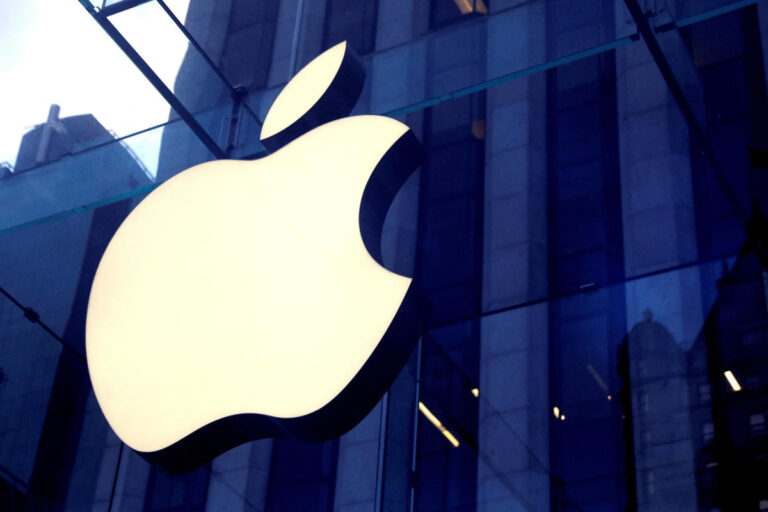SAN FRANCISCO (Reuters) – Apple (AAPL) has chosen chips designed by Google (GOOG, GOOGL) rather than industry leader Nvidia (NVDA) to build two key pieces of the artificial intelligence software infrastructure for a forthcoming suite of AI tools and features, according to an Apple research paper published on Monday.
Apple’s decision to rely on Google’s cloud infrastructure is notable, as Nvidia makes some of the most popular AI processors.
If you include chips made by Google, Amazon.com (AMZN) and other cloud-computing companies, Nvidia controls about 80% of the market.
In the research paper, Apple did not explicitly say that it didn’t use Nvidia chips, but its description of the hardware and software infrastructure for its AI tools and features made no mention of Nvidia hardware.
Apple did not comment on Monday.
The iPhone maker said it used two types of Google’s Tensor Processing Units (TPUs), organized into large clusters of chips, to train the AI models.
To build the AI models that run on iPhones and other devices, Apple used 2,048 TPUv5p chips. For server AI models, it deployed 8,192 TPUv4 processors.
Nvidia isn’t designing TPUs, but is instead focusing on so-called graphics processing units (GPUs), which are widely used for AI efforts.
Unlike Nvidia, which sells its chips and systems as standalone products, Google sells access to its TPUs through its Google Cloud Platform, and customers interested in buying access must build software through Google’s cloud platform to use the chips.
Apple is rolling out some of its Apple Intelligence to beta users this week.
Reuters reported on the use of TPU chips in June, but Apple didn’t disclose the full extent of its reliance on Google’s hardware until Monday’s research paper.
Google did not respond to a request for comment, and Nvidia declined to comment.
In the paper, Apple engineers said that using Google’s chips would make it possible to build models that are even larger and more advanced than the two discussed in the paper.
At its developers conference in June, Apple announced a number of new AI features, including the integration of OpenAI’s ChatGPT technology into its software.
Shares of the Cupertino, California-based company fell 0.1% to $218.24 in regular trading on Monday.
(Reporting by Max A. Charney in San Francisco; Editing by Matthew Lewis and Varun HK)


